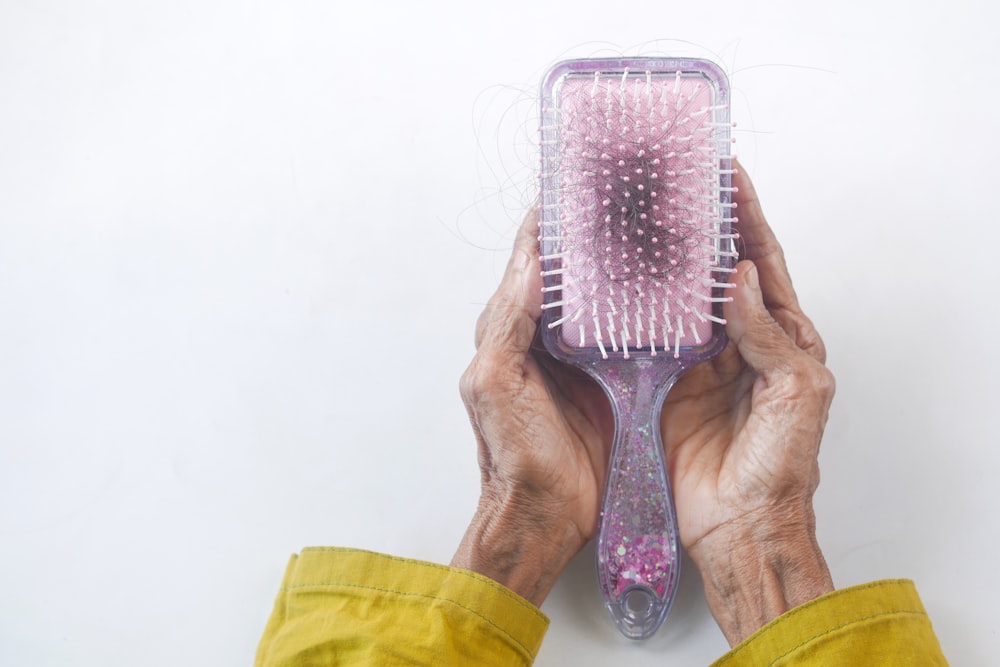Preventing Hair Loss: A Comprehensive Guide to Healthy Hair
Introduction:
Hair loss is a common concern for many individuals, and it can significantly impact self-esteem and confidence. While some degree of hair shedding is normal, excessive hair loss can be distressing. In this blog post, we will explore effective strategies and lifestyle changes to prevent hair loss and maintain healthy hair. By understanding the causes of hair loss and adopting preventative measures, we can promote hair growth and preserve our crowning glory.
Understanding the Causes of Hair Loss:
Begin by discussing the common causes of hair loss, such as genetic factors, hormonal imbalances, nutritional deficiencies, stress, and certain medical conditions. Explain how these factors can disrupt the natural hair growth cycle and lead to hair thinning and shedding. Emphasize the importance of identifying the underlying cause to develop an effective prevention plan.
Nurturing a Healthy Diet for Hair:
Highlight the significance of a balanced diet in promoting healthy hair growth. Discuss the essential nutrients needed for strong and vibrant hair, including protein, iron, vitamins (such as vitamin A, C, and E), omega-3 fatty acids, and biotin. Provide a list of hair-friendly foods and suggest incorporating them into daily meals to ensure optimal nutrition for hair health.
Maintaining a Gentle Hair Care Routine:
Address the importance of a gentle hair care routine to prevent damage and breakage. Advise against excessive brushing, tight hairstyles, and the use of harsh chemical treatments. Recommend using a wide-toothed comb, avoiding excessive heat styling, and choosing hair products that are free from sulfates and parabens. Emphasize the benefits of regular conditioning and minimizing friction when drying hair.
Managing Stress and Promoting Emotional Well-being:
Explain the connection between stress and hair loss, highlighting the role of chronic stress in disrupting the hair growth cycle. Discuss stress management techniques such as exercise, meditation, deep breathing exercises, and engaging in hobbies. Encourage readers to seek emotional support and practice self-care to maintain overall well-being and minimize the impact of stress on hair health.
Protecting Hair from Environmental Factors:
Address the damaging effects of environmental factors on hair health, such as exposure to UV rays, pollution, and harsh weather conditions. Suggest protective measures, such as wearing a hat or scarf, using UV protection sprays, and rinsing hair after swimming in chlorinated water. Provide tips for maintaining a healthy scalp, such as regular cleansing and avoiding excessive use of styling products.
Avoiding Harmful Habits:
Discuss the negative impact of certain habits on hair health. Address the risks associated with smoking, excessive alcohol consumption, and poor sleep patterns. Explain how these habits can contribute to hair loss and suggest healthier alternatives, such as quitting smoking, reducing alcohol intake, and prioritizing restful sleep for optimal hair growth.
Seeking Professional Advice:
Acknowledge the importance of seeking professional advice when experiencing excessive hair loss. Encourage readers to consult dermatologists or trichologists to identify the underlying cause and develop a personalized treatment plan. Discuss the available medical treatments, such as topical medications, oral supplements, and hair transplant options.
Conclusion:
Preventing hair loss requires a comprehensive approach that encompasses lifestyle changes, proper nutrition, gentle hair care, stress management, and protection against environmental factors. By adopting these preventive measures and seeking professional guidance when necessary, we can promote healthy hair growth and maintain our crowning glory. Remember, consistency and patience are key in achieving and preserving luscious locks. Let us embrace a holistic approach to hair care and enjoy the benefits of healthy, beautiful hair.


















![[ℕ𝕖𝕧𝕖𝕣] 𝕊𝕖𝕝𝕝 𝕐𝕠𝕦𝕣 𝔹𝕚𝕥𝕔𝕠𝕚𝕟 - And Now What.... Pray To The God Of Hopium?](https://cdn.bulbapp.io/frontend/images/79e7827b-c644-4853-b048-a9601a8a8da7/1)






































